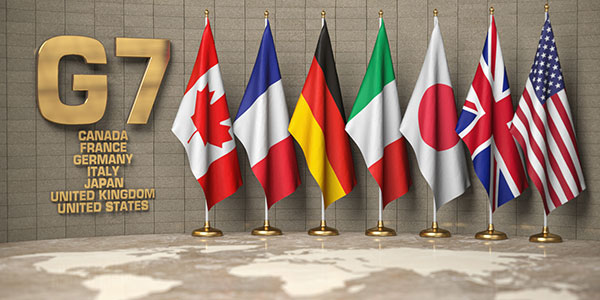
June 27, 2022, by Emma Thorne
Proposals to curb Russian oil profits are interesting but need careful handling
As G7 leaders meet for a summit in the Bavarian Alps today to seek a deal to impose a ‘price cap’ on Russian oil as part of sanctions in response to its invasion of Ukraine, Dr Tyler Kustra, assistant professor in the School of Politics and International Relations, looks at how it might work in practice.
Proposals to allow Russia to export oil at a price lower than the current world price are interesting but must be implemented correctly to avoid allowing Putin to benefit. Specifically, Western governments should attempt to collect some sort of tax on the oil, or buy it themselves and then resell it, rather than just allowing it to sell at a discount. If implemented incorrectly it is asking for another oil for food scandal (https://en.wikipedia.org/wiki/Oil-for-Food_Programme#Oil_coupons_as_bribes) like we had with Iraq in the 1990s/2000s.
Currently Russian crude is selling at a discount to other oil because of the possibility of sanctions. As a result, dealers and refiners are able to make significant profits for taking the risk of dealing in a shunned commodity. Putin’s loss is the dealers’/refiners’ gain.
Provided that the crude is still reaching world markets, sanctions are not responsible for the rise in the global oil/petrol prices. Sanctions are just changing who makes the profit.
The G7 know that their insurance companies underwrite most, but not all, of the world’s oil tanker insurance policies. They are proposing to use that as leverage, saying that they will allow trade in Russian oil provided that it trades at a steep discount to the world price. That would ensure that the crude is still entering world markets, while in theory limiting how much Putin benefits.
The issue is that someone who the West allows to buy 1 million barrels of Russian oil at $10/barrel less than the world price has a license to make $10 million by reselling the oil.
During the oil for food scandal in the 1990/2000s, the UN allowed Saddam Hussein to sell oil but at less than the world price. Saddam then sold the oil to cronies and expected kickbacks.
Putin would do exactly the same thing. If you want to buy 1 million barrels at $10/barrel less than the world price, you would have to send the Kremlin a $10 million kickback.
Monitoring this would be very difficult. Therefore the scheme could go very poorly.
A better scheme would be to allow Western firms to engage in transactions involving Russian oil provided they paid a tax equal to the discount at which that oil would have traded due to the threat of sanctions. This would ensure that the oil enters the world market, which reports have said it is doing anyway, while keeping the price that Putin receives low and capturing the difference.
Alternatively, Western governments could buy the oil themselves and then resell it. They could use the tax revenue/profits to support the Ukrainian’s war effort or help with rebuilding Ukraine once the war ends.
Think of it like a carbon tax but instead of preventing global warming it would prevent Russian aggression.
The difficult part would be setting the price Western governments would buy the oil at or the tax rate they would impose. It would have to be such that Putin and any dealers/refiners/insurers/etc. would rather accept it than take the risk of smuggling the oil.
Figuring out what prices or tax rates, if any, would work will be tricky and requires a deep knowledge of how oil markets operate. If it can be done correctly it would help constrain Putin and provide for Ukraine, but the difficulty in finding the correct number should not be underestimated.
No comments yet, fill out a comment to be the first

Leave a Reply